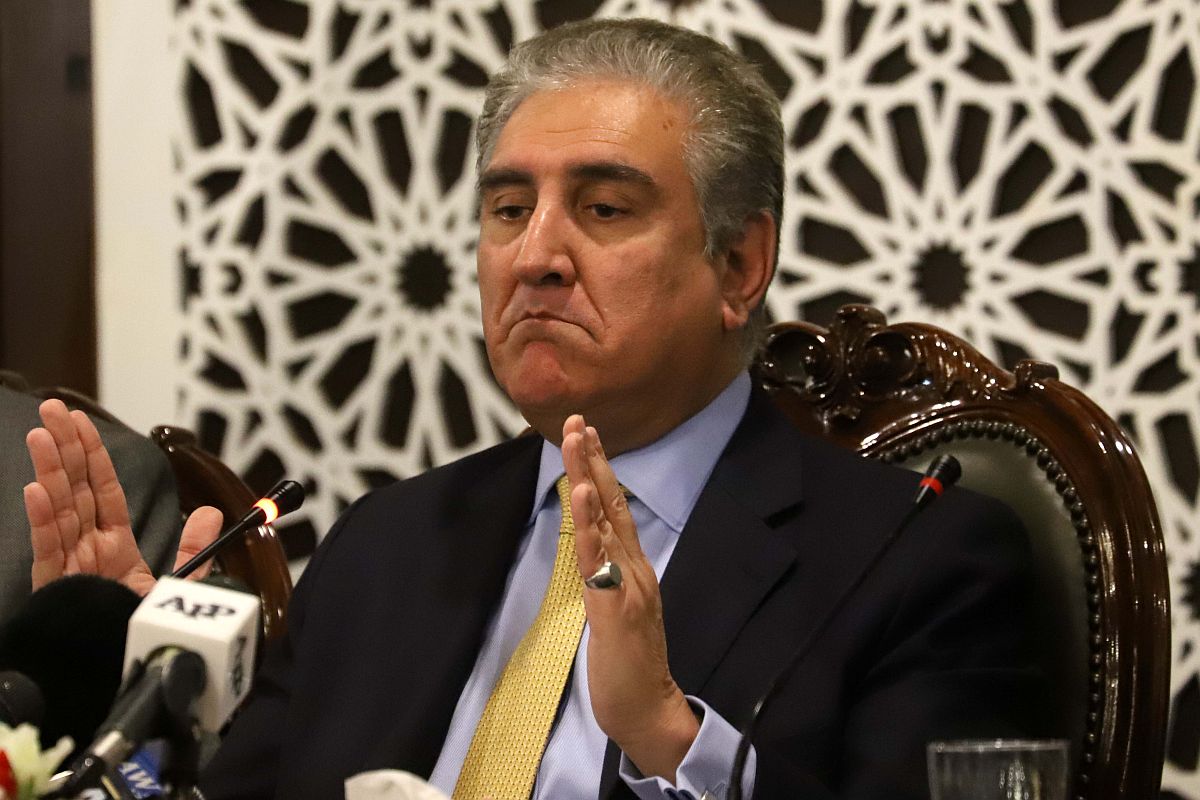Stage set for tomorrow’s polling in high profile Udhampur LS seat amid high security
Jammu and Kashmir has five Lok Sabha constituencies and each one will go to polls in separate phases because of security reasons.
Qureshi’s statement comes hours after External Affairs Minister S Jaishankar said that India is willing to discuss outstanding issues with Pakistan bilaterally in an atmosphere free of terror and violence.

Pakistan Foreign Minister Shah Mahmood Qureshi. (File Photo: IANS)
Amid heightened tensions over Centre’s abrogation of Article 370, that granted special status to Jammu and Kashmir, Pakistan Foreign Minister Shah Mahmood Qureshi was quoted as saying by the country’s media that Islamabad was ready for “conditional” bilateral talks with India.
Qureshi’s statement comes hours after External Affairs Minister S Jaishankar on Friday, in a with European Union Commissioner Christos Stylianides, said that India is willing to discuss outstanding issues with Pakistan bilaterally in an atmosphere free of terror and violence.
Pakistan has been trying to gain global attention by raising the Kashmir issue at the United Nations.
Advertisement
Recently, Shireen M Mazari, minister for human rights in the Imran Khan government had issued a letter to multiple UN officials, listing Pakistan’s complaints about the situation in Jammu and Kashmir since the abrogation of Article 370.
Mazari had written a detailed letter to 18 UN Special Rapporteurs alleging massive human rights violations by India in Jammu and Kashmir after it revoked its special status, which she termed as “an annexation by force and therefore an illegal act”.
India has categorically told the international community that the scrapping of Article 370 to revoke the special status of Jammu and Kashmir was an internal matter and also advised Pakistan to accept the reality.
Following the abrogation of Article 370, Pakistan decided to downgrade diplomatic relations with India over the Kashmir move. It expelled Indian High Commissioner Ajay Bisaria and suspended trade with India.
In a series of retaliatory measures, Islamabad suspended the Samjhauta Express and Thar Express services operating between Pakistan and India.
India has also slammed Pakistan for the unilateral decisions taken in respect to the bilateral relations and urged the neighbouring nation to “review the steps taken so that normal channels for diplomatic communications are preserved”.
A day after the Indian government abrogated Article 370, Imran Khan had warned of “Pulwama-like incidents to happen again”.
On August 14, Pakistan Prime Minister Imran Khan had termed India’s move to revoke special status to Jammu and Kashmir a “strategic blunder” and said that the move will cost New Delhi “heavily”.
Earlier this week, a Pakistani minister had reportedly predicted a “full-blown war between Pakistan and India likely to occur in the month of October or November”.
According to reports, Railways Minister Sheikh Rashid Ahmed, while addressing a ceremony in Rawalpindi, said that the war with India will be the “last this time”.
The rare closed-door consultations on Kashmir by the UN Security Council ended without any outcome or statement from the powerful 15-nation UN organ, dealing a huge snub to Pakistan and its all-weather ally China to internationalise the issue, which an overwhelming majority stressed is a bilateral matter between New Delhi and Islamabad.
France, UK, Russia, the US — four of the five permanent members of the UN security council — have endorsed India’s line.
Advertisement